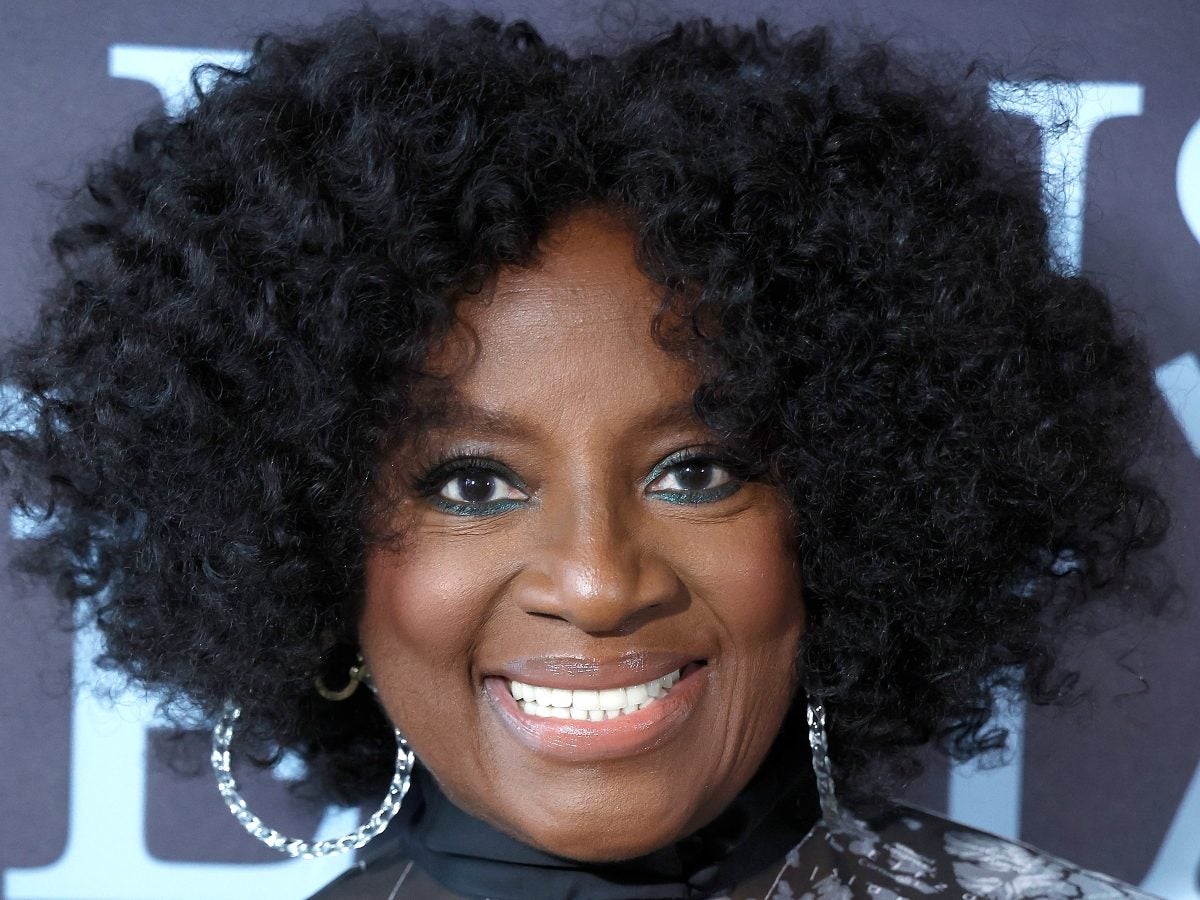
In sixth grade, an adolescent LaTanya Richardson Jackson tried to make fun of a fellow student. Thinking she’d embarrass him, she instructed him to complete a series of actions. When he did, instead of being met with ridicule, her peers applauded the boy. Jackson, on the other hand, was left standing there with egg on her face, saying to herself, “Well, that didn’t go as planned.”
That was a moment that never left Richardson Jackson, who says she learned two things that day: (1)Don’t ever try to make fun of people and (2) you just might know how to tell people what to do–in a creative way that is.
It was true. Today, at 73 years old, Jackson is the first woman to direct an August Wilson play on Broadway.
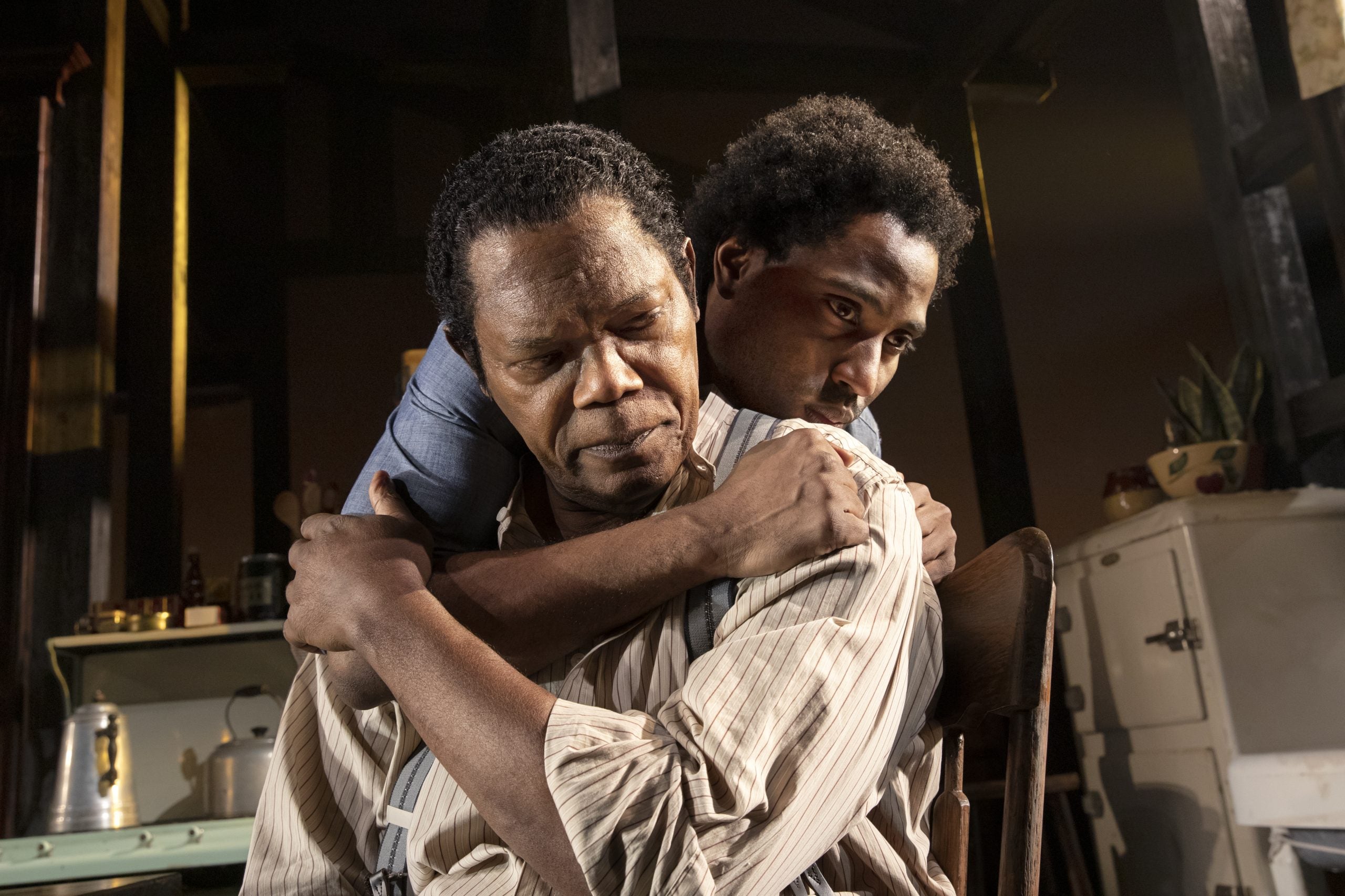
The Piano Lesson, starring John David Washington, Danielle Brooks, and Jackson’s husband Samuel L. Jackson, premiered this past October and is the highest grossing revival of a play this season. Its limited 16-week run has been extended an additional two weeks to January 29.
Though her flair for directing was apparent in childhood, it was acting that had a hold on her Richardson Jackson during her formative years.
“All throughout school I was in children’s theater at Spelman and then I went to school there,” she explains. “I just wanted to act. I saw it and I wanted to do it. Those who have been touched by it, you are mesmerized by it. It seduces you to stay on a path.”
Following that path, there were opportunities to direct. There were skits, plays and vignettes. Everyone directed. But Jackson’s natural ability stood out. Eventually, playwright Douglas Turner Ward, founder of the Negro Ensemble Company, acknowledged her talent.
“I was the only person Doug put on the program as Assistant Director not assistant to the director,” Richardson Jackson says. “He used to tell me, ‘You can do this because you have the sight for it.’”
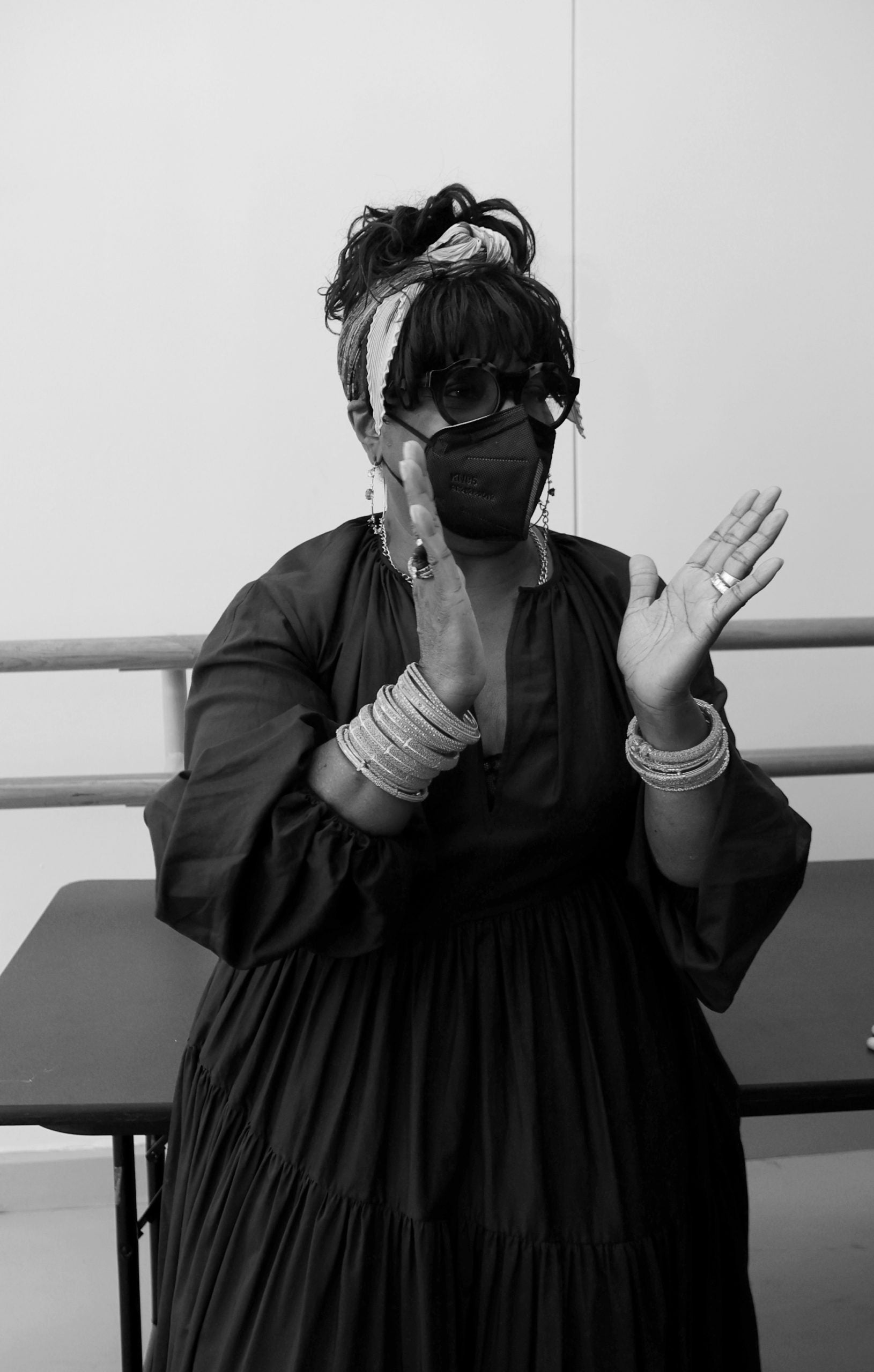
Ward was just one of many people who would encourage Jackson along the way. Academy Award-nominated director Sidney Lumet and film and theater producer-director Oz Scott were among the others. Richardson Jackson thanks these men in the Playbill for The Piano Lesson, but it wasn’t exactly her goal to direct for Broadway. She was happy simply offering insight on her director friends’ projects. Eventually, The Piano Lesson landed in Richardson Jackson’s lap after actor and friend Denzel Washington told her he wanted her to direct the piece.
“I was in shock,” she recalls. “I was like, ‘Really?! Me?” Jackson says she often asks God to help her be present in the moments when things come to her. So after the shock subsided, she was ready. “Oh hell yeah,” Jackson said in response to the opportunity. “Let’s go. Let’s go.”
As the first woman to direct this play in this venue, Jackson knew first what she didn’t want to do: regurgitate what had already been done. Jackson had seen the productions directed by Lloyd Richards, the man who handled many of Wilson’s works.
“Who’s going to be better than what he did?!” Jackson asks. “ I was trying to imagine a world that the themes of this play and these people would be acceptable for a new generation. I had to open up the metaphor. Art exists for people to feel, to see it, to visit it in their way.”
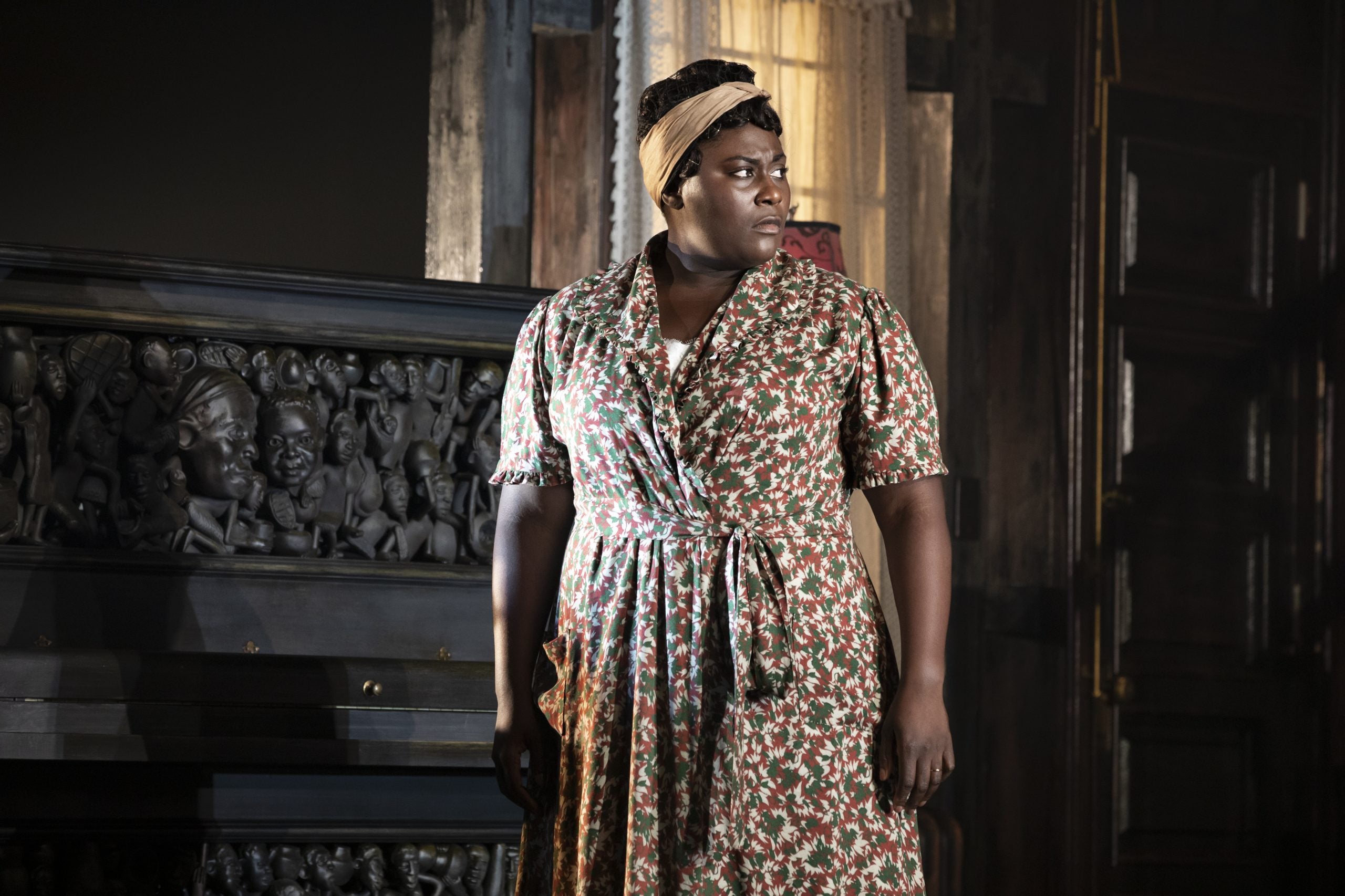
From Wilson’s text Jackson could see that the characters were broken. And so was their home. So Jackson instructed that the house be constructed with no walls and the ability to split in two. Jackson saw characters who were searching for something, even if they didn’t know what that something was.
“I want to go into it psychologically and delve into who they are in a setting that is pleasing to me aesthetically,” Jackson said. “I understand how poor they were supposed to be. But I am given that they own a house. Yeah you’re poor but Black people were poor during the depression and we ate. Black people have been poor during a political climate that has denied us, marginalized us and tried to push us into the ground. But we’re still doing it. So what does it look like to us? That’s what I tried to envision.”
The result of Jackson’s vision is striking. Not only in the structure of the home but particularly in the piano at the center of the story. Set designer Beowulf Borritt, with Jackson’s instruction, modeled it after a Makonde Tree of Life sculpture in the Jackson family home in Los Angeles.
“They were able to dial in the history of the story that Sam told into the figures itself to create that piano,” Jackson said. “It’s going to the Smithsonian because it is unbelievable how that piano came to be. That’s what you’ve got to love about creativity. What’s possible. It was from a vision from a statue in my house.”
The success of this play isn’t just the result of intuition and natural ability, Jackson also made sure she was prepared.
“I studied for this,” Jackson says. “To be given this kind of gift, I wanted to make sure that if a question was asked that I at least had a way to reference the question for us to find the answer. And the only way I could do that was to know the landscape and to move through it in a way that others who had gone before me had done.”
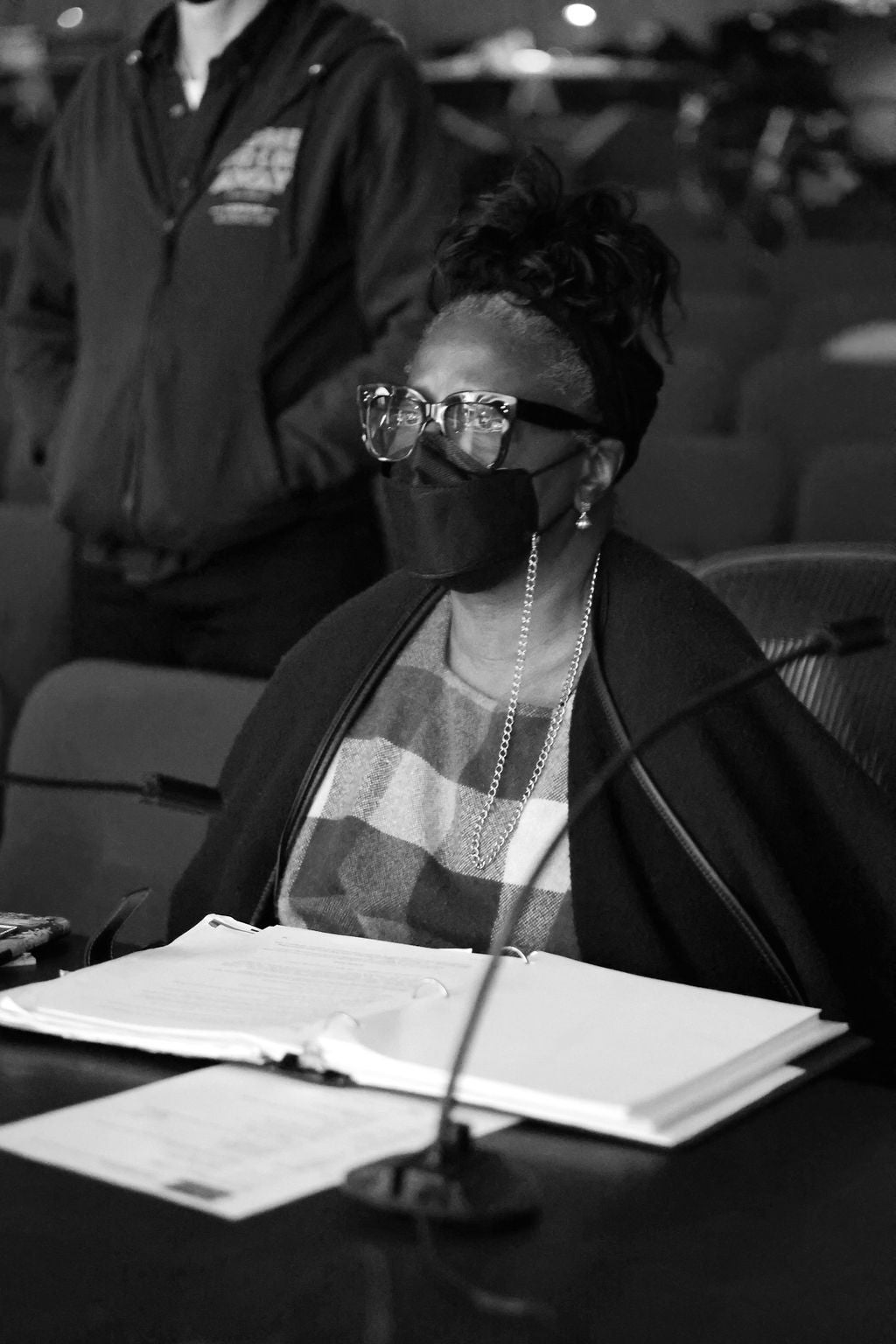
More than just learning how to navigate this new space, Jackson has also learned valuable lessons about herself.
“I don’t want this to sound conceited–but God has given me a stake in power that is viable in this particular market,” Jackson says.
It’s a lesson she feels more Black women should embrace no matter their industry.
“I’m telling all my sistas, look, I know that we have been raised to be humble. I know that we have been in that season. But that season is changing,” Jackson says.
Jackson believes at this point we have more than enough humble in our DNA. Now it’s time to “move forward surely.” She wants Black women to know we don’t have to back down and we can say what we need to.
“We’ve done a backseat long enough,” Jackson continues. “We have helped everybody. We have done everything for everybody. Our spouses, other races, children. We know what all this is. Why are we so afraid to stand up and take charge?”
For anyone with a dream, who may be discouraged by how long it has taken to achieve it, Jackson, the same woman living in bounty of her adolescent brilliance, offers this: “As long as there is a breath in your body and you can move, keep pressing forward,” Jackson urges. “In due season, you will reap if you faint not. Keep pressing forward. Choose it. Choose that thing everyday. Because what else is there?”